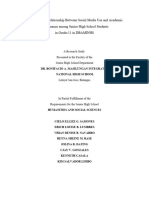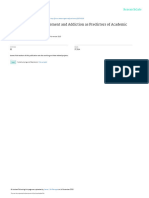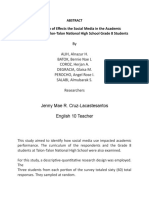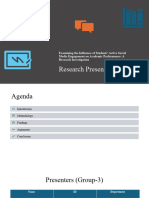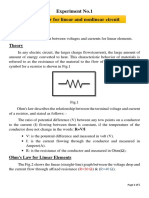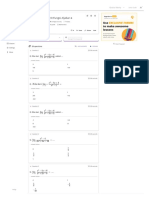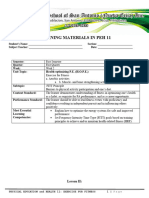0% found this document useful (0 votes)
48 views3 pagesExpanded Social Media Academic Performance
This paper examines the impact of social media on academic performance among university students, highlighting both negative effects such as procrastination and decreased focus, as well as positive aspects like academic collaboration and networking. A survey of 312 students revealed a strong correlation between excessive social media use and lower GPAs, while intentional use can enhance learning outcomes. The study suggests that educational institutions should promote digital literacy and mindful social media usage to mitigate potential harms.
Uploaded by
jcmgtrdCopyright
© © All Rights Reserved
We take content rights seriously. If you suspect this is your content, claim it here.
Available Formats
Download as DOCX, PDF, TXT or read online on Scribd
0% found this document useful (0 votes)
48 views3 pagesExpanded Social Media Academic Performance
This paper examines the impact of social media on academic performance among university students, highlighting both negative effects such as procrastination and decreased focus, as well as positive aspects like academic collaboration and networking. A survey of 312 students revealed a strong correlation between excessive social media use and lower GPAs, while intentional use can enhance learning outcomes. The study suggests that educational institutions should promote digital literacy and mindful social media usage to mitigate potential harms.
Uploaded by
jcmgtrdCopyright
© © All Rights Reserved
We take content rights seriously. If you suspect this is your content, claim it here.
Available Formats
Download as DOCX, PDF, TXT or read online on Scribd
/ 3



















